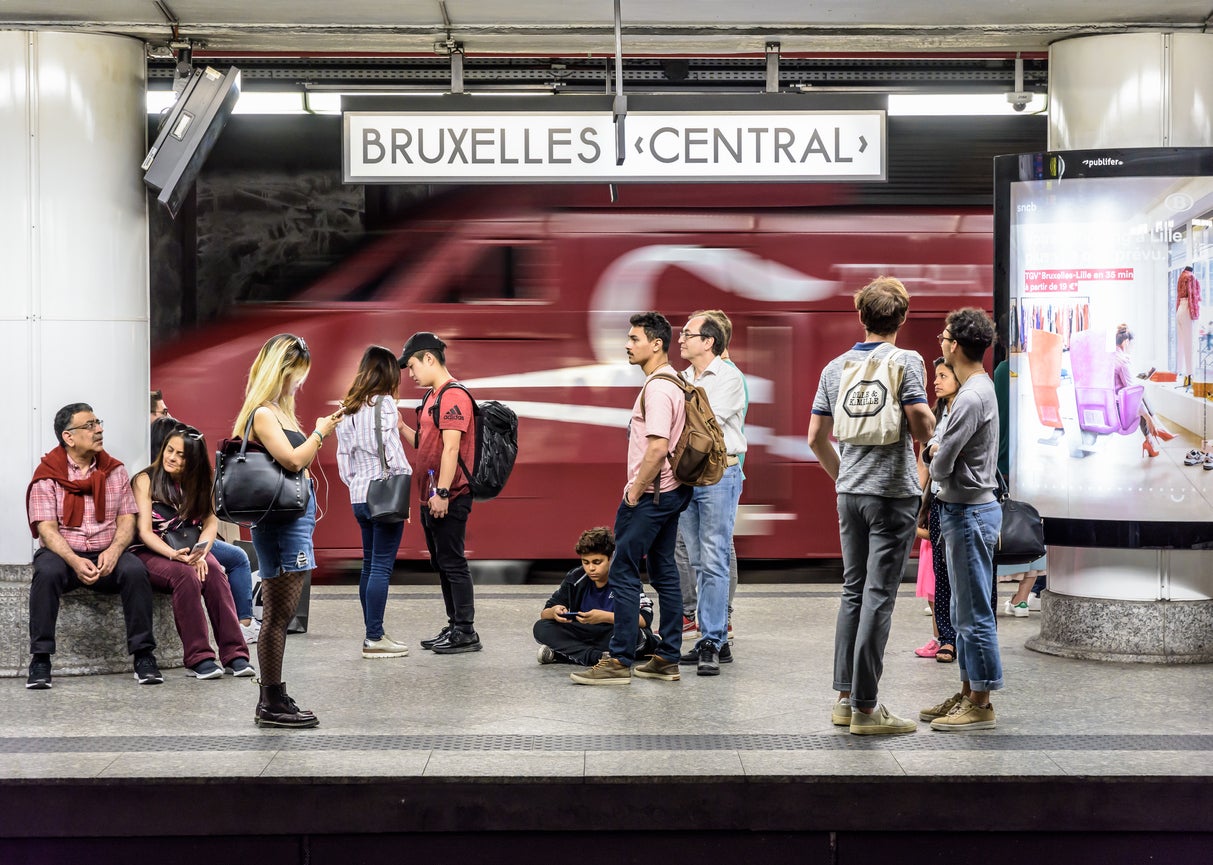Dutch airline replaces Brussels flight with high-speed train to cut emissions
Airline pledged to ‘fly responsibly’

Your support helps us to tell the story
From reproductive rights to climate change to Big Tech, The Independent is on the ground when the story is developing. Whether it's investigating the financials of Elon Musk's pro-Trump PAC or producing our latest documentary, 'The A Word', which shines a light on the American women fighting for reproductive rights, we know how important it is to parse out the facts from the messaging.
At such a critical moment in US history, we need reporters on the ground. Your donation allows us to keep sending journalists to speak to both sides of the story.
The Independent is trusted by Americans across the entire political spectrum. And unlike many other quality news outlets, we choose not to lock Americans out of our reporting and analysis with paywalls. We believe quality journalism should be available to everyone, paid for by those who can afford it.
Your support makes all the difference.Dutch airline KLM is replacing one of its daily flights between Amsterdam Schiphol airport and Brussels with a high-speed train service.
The carrier will cut down from five flights a day to four from 29 March 2020, swapping one flight for seat capacity onboard a Thalys train.
However, KLM passengers have been promised that the rail option will match the service they would receive travelling by plane.
It’s part of the airline’s long-term plan to reduce the number of flights between Brussels and Amsterdam and to gradually replace short-haul hops with rail services – providing the train can match the speed, reliability and comfort of air travel.
“Intermodal transport involving trains and planes remains a complex and challenging business,” said KLM president and chief executive Pieter Elbers.
“Speed is key, not only in terms of the train itself, but also the transfer process at the airport. We aim to make maximum progress in both areas.
“Reducing our frequency from five to four flights a day is a good way of gaining more experience with Air&Rail services.”
The move is partly in response to slot restrictions at Amsterdam airport (limiting the number of flights KLM can operate), and partly down to KLM’s “Fly Responsibly” commitment.
This initiative aims to create a sustainable future for air transport, and incorporates “all of KLM’s current and future efforts to improve the sustainability of its activities”. These include inviting consumers to offset the carbon emissions from their flights, and inviting companies to compensate for business travel by investing in the airline’s Corporate BioFuel Programme.
Surprisingly for an airline, KLM announced this summer that it wanted to encourage passengers to “make responsible decisions about flying”.
“Flying – after all these years the feeling is still magical. For many of us it changed our world forever,” Elbers wrote in an open letter.
“When we started 100 years ago, our major concern was your safety. Little did we know about the impact we would have on the environment. Today we know aviation comes with another big responsibility – to make sure our children have a planet to explore, as well.”
Elbers said KLM would share its “best practices and tools” around sustainability with its competitors, and is asking the aviation industry to share their knowledge in turn.
The campaign was supported by a video, which asked air travellers: “Do you always have to meet face to face?”, ”could you take the train instead?” and “could you contribute by compensating your CO2 emissions or packing light?”
Join our commenting forum
Join thought-provoking conversations, follow other Independent readers and see their replies
Comments